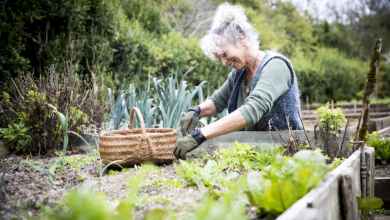Adjusting to Change: Living in a Post-COVID-19 World

Chat with Your Doctor About COVID-19 Risks
Even though life is getting back to how it was before the pandemic and we’re seeing fewer restrictions, COVID-19 hasn’t completely disappeared. This is particularly true for seniors over 65, who are at a higher risk of severe COVID-19, as noted by the CDC. It’s crucial to understand your own risk as we move into this new phase.
Start by discussing your COVID-19 risk with your doctor. They’ll look at your health and any conditions that might make you more vulnerable to a serious COVID-19 infection, such as cancer, chronic kidney disease, lung disease, dementia, diabetes, and heart conditions. Follow your doctor’s guidance on how to stay safe based on your health.
Keep Up with COVID-19 Vaccinations
As we enter this next stage, staying current with your COVID-19 vaccinations is key. If you haven’t had a shot recently, you might need a booster. But, it’s best to talk to your doctor about when to get vaccinated and which vaccine is right for you. This is especially important if you have a weak immune system, as your vaccination schedule might be different from the standard one.
Reconnecting with Friends and Family
After a long period of social distancing and virtual catch-ups, you may be eager to see your loved ones in person again. Start slowly, focusing on those you missed the most. Maybe invite your children or grandchildren over for dinner. As you get more comfortable, you can gradually join groups or meet up with friends and neighbors.
Remember to be mindful of everyone’s health. If someone in your circle is unwell, it’s better to postpone your plans. Not every sickness is COVID-19, but caution is still important.
Handling Emotions and Loneliness Post-Pandemic
The pandemic was tough emotionally. We all missed our normal lives and our loved ones. As things go back to normal, it’s natural to still feel anxious or lonely. For example, being in large crowds might worry you, especially if you’re at high risk.
Take care of your mental health in this new era. Talking to your doctor can alleviate worries about COVID-19. If you’re still struggling, consider seeing a mental health professional, especially if you’re having sleep issues, changes in appetite, or ongoing worries.
Staying Healthy in the New Normal
Maintaining your overall health is crucial. Regular check-ups can keep you in good shape and manage any health issues. If you have COVID-19 symptoms, stay home and get tested. Follow the CDC’s advice on testing and self-care if you test positive.
Life has changed due to the pandemic, but as we adjust to this new normal with COVID-19, focus on both your physical and mental well-being. Remember to balance your health concerns with reconnecting with people and doing things you enjoy. As you adapt, find ways to balance caution with reclaiming a normal life.




